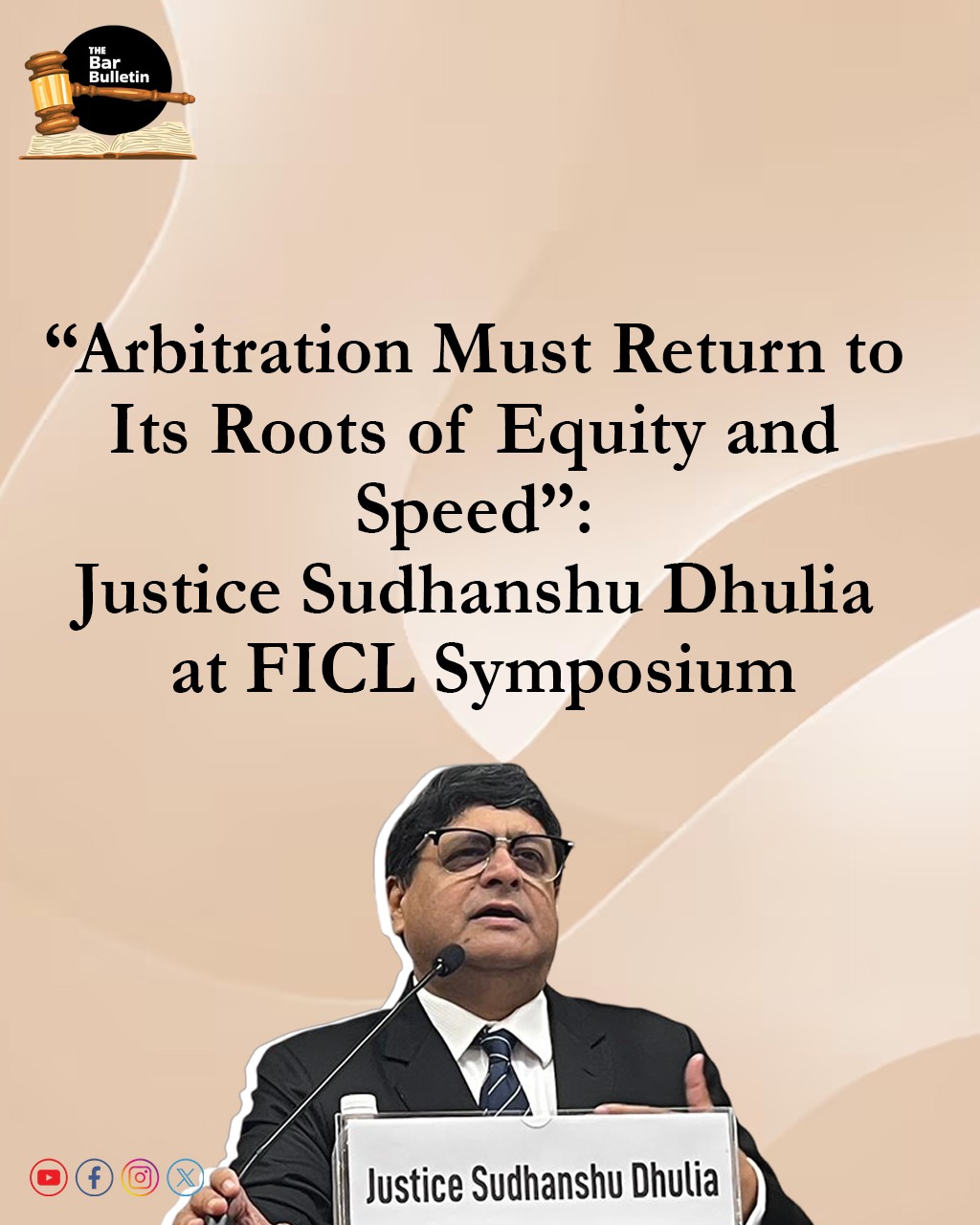At the Federation of Indian Corporate Lawyers (FICL) symposium on “Arbitration in India – The Road Ahead”, Justice Sudhanshu Dhulia, Judge, Supreme Court delivered an insightful and refreshingly candid address, urging a return to arbitration’s foundational principles of equity, speed, and accessibility. Clarifying that he was not delivering a formal keynote but had come more to learn than to lecture, Justice Dhulia reflected on India’s long-standing cultural affinity with arbitration, tracing its origins to village dispute resolution systems and even literary works like Premchand’s Panch Parmeshwar.
Justice Dhulia underscored that equity not procedural rigidity was historically the soul of arbitration, and lamented that this has been lost in modern practice. He pointed to Section 28(2) of the Arbitration and Conciliation Act, 1996, which permits arbitrators to decide cases based on equity and good conscience if both parties consent. Yet, he noted, this clause is rarely invoked, despite its potential to streamline proceedings and ensure fair outcomes without the burden of technical formalities.
Justice Dhulia did not shy away from highlighting the increasing procedural delays and litigation overload in arbitration. Referring to Sections 11, 34, and 37 of the Act, he noted that what was meant to be an efficient alternative to courts is now plagued by multi-tiered legal challenges. He revealed that as of February 2024, the Supreme Court had 132 pending petitions under Section 11 alone and over 1,387 SLPs related to arbitration, reflecting how far the system has drifted from its intended purpose.
Justice Dhulia also questioned the notion of arbitration as an accessible form of justice.
“Let’s accept it, arbitration is a rich man’s litigation,”
he remarked, contrasting the flurry of amendments in arbitration laws with the relative neglect of pro-poor statutes like the Workmen’s Compensation Act. He suggested that such inequality in reform efforts reveals an imbalance in whose concerns are prioritized.
Commenting on India’s aspirations to become an international arbitration hub, Justice Dhulia warned that this goal could remain elusive unless institutional arbitration becomes the norm. India still relies heavily on ad-hoc arbitration, which lacks the structure and consistency seen in globally reputed institutions.
Finally, he urged stakeholders to actively engage with the proposed Arbitration Bill, currently under public consultation. Emphasizing the importance of streamlining Sections 34 and 37 to reduce unnecessary litigation and delays, he called for a collaborative approach between legal practitioners, institutions, and the legislature.
“The purpose of arbitration is speed and simplicity—let us return to that,”
Justice Dhulia concluded.

